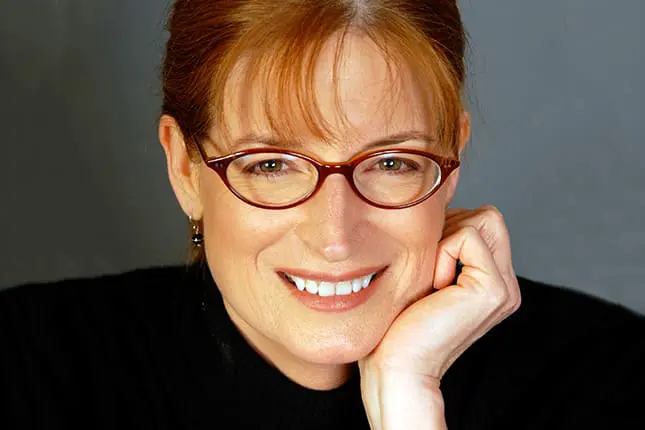The debate over whether there are fundamental differences in the psychological and cognitive functioning of men and women is still a volatile political issue, especially for those on the lookout for potentially discriminatory stereotypes. The latest battleground for this debate is the human brain itself. Neuropsychiatrist Louann Brizendine’s two bestsellers, The Female Brain and The Male Brain, in which she argues that differences in hormones and brain structure account for much of the difference in male and female behavior, have made her a polarizing figure among scholars and casual readers alike. Newsweek calls her work “common sense to some and nothing short of heresy to others.” Brizendine, who’ll be a luncheon speaker at the 2011 Networker Symposium in March, recently took a break from the lecture circuit and work as director of the Women’s Hormone and Mood Clinic at the University of California, San Francisco, to talk about the controversy surrounding her work.
———
RH: Why do you think that your work triggers such strong reactions in people?
BRIZENDINE: Oh yeah, people either love it or they hate it! The problem with talking about anything that has to do with gender differences is that it’s likely to violate some people’s ideas about what’s politically correct.
RH: So how has your own experience as a woman and a feminist influenced your work?
BRIZENDINE: I was part of the second wave of the feminist movement in the ’70s at UC Berkeley. In that era, if you said there was any difference between the genders, you might as well have been saying that women were inferior to men. Like many women, I felt that when I had a son, I was going to raise him to be emotionally evolved and sensitive to his feelings, and that, one day, my future daughter-in-law would thank me for the great job I’d done. We had all these great fantasies about turning the next generation of men into something we felt was lacking in the men we were dating. But that was before I got married, became a mom, and discovered what it was like to raise a child.
RH: You once advised women: “Celebrate your man for being a man and stop trying to make him act more like you. It can’t be done and will only add tension to your relationship.”
BRIZENDINE: That’s the old French idea of “Vive la difference!” It would be very boring if we were all the same. But many women want it both ways. We want the guy to say “Honey, I know how you feel.” But, at the same time, they want the man to be a man. That can lead to the impossible expectation that men have to be both ways all the time.
RH: For lots of therapists, the most striking thing about your work is how you explain the different roles hormones play in the developing brains of men and women.
BRIZENDINE: The hormone testosterone predisposes males to seek out females for sex. Testosterone’s evolutionary assignment is to give men a strong sex drive and an interest in seeking out fertile females. In women, estrogen is the more dominant hormone. It creates more oxytocin in the body and brain, and it makes women more likely to protect the young and to keep helpless infants alive. So both the female and male brain are not only built on different genes or a somewhat different scaffolding, but they’re also running on these different hormones whose job it is to make certain behavior more likely. There’s nothing mysterious about that.
RH: So what about the political implications of putting a spotlight on gender differences?
BRIZENDINE: It’s the way it is. Let’s say someone were to say to you “Because you’re a guy, you can’t be a caring psychologist.” Well, that’s offensive, right? Well, there’s nothing offensive about gender difference unless you say “Oh, because you’re a male or female, you can’t do a certain job.” It’s this next step that drives people nuts, and I don’t take that step in my books. Saying that we’re different doesn’t mean that it’s okay to discriminate against one gender or the other, or say that one’s better than the other.
RH: How does what we’re learning about the brain and development change the old nature vs. nurture debate?
BRIZENDINE: By now, most scientists agree that personality and temperament are about 50 percent due to what we’re born with. But the other 50 percent is really big. So little boys like guns and like to pound each other with rough and tumble play. For little girls, it’s the nurturing, verbal, eye-contact, relational play. You know, “You be the mommy, I’ll be the daddy.” Females all their life tend to cry about four times more than males do. Is that because we have larger tear ducts and more prolactin to make tears? That doesn’t explain the whole story. So when people accuse me of being a biological determinist, I say no way. I believe that all of those things feed back to make us who we are. You can’t escape the 50 percent that’s the nature and the wiring and the hormones that you’re born with. You also can’t say that human nature is completely culturally created.
RH: So how does brain development fit into all this?
BRIZENDINE: Scientists now know that everything that happens—like trauma or growing up in a certain parenting environment or having your best friend move away in third grade or being sexually abused—all those things feed back on the brain to actually change some of the ways the genes are expressed. It’s the whole area we now call the epigenetic forming of the brain. For example, none of us was born knowing how to play the piano, but practice and repetition can actually make the area of the brain related to piano playing grow six, seven, eight times larger than it would be otherwise. Just like pumping iron—by the time you end up bench-pressing 300 lbs., your biceps are pretty big.
RH: How might epigenetics impact relationships?
BRIZENDINE: For example, if you’re born and raised in a really nurturing and supportive environment with parents who are life coaches on everything you do, versus one in which you’re neglected, abused, and nobody can be trusted, that feeds back on the brain and changes the circuitry. So having the trusting environment that we’d like all people to grow up in reinforces a tendency to trust versus not trust.
RH: What does your work have to offer therapists?
BRIZENDINE: The thing I have to offer the average psychotherapist is this kind of understanding of hormones and behavior. For example, we used to put females on the analytic couch because they have no libido, right? They were called “frigid”—remember that old word frigid? In my day, frigid women were thought to need psychoanalysis. But what I found when I started testing my patients’ testosterone levels was that some women had such low levels that they were almost unmeasurable. When I started giving them back their testosterone, their sex drive came back. And I thought “Oh my God, my entire field has been putting these women on a couch for all these years and saying something’s wrong with them.” A basic knowledge of the importance of hormones can help therapists recognize when they should start thinking that something biological is going on, so they can encourage their patients to go get that checked out. I think that’s a biggie.
RH: How did you first get interested in the role of hormones in brain functioning?
BRIZENDINE: When Prozac came out in 1987, they didn’t know that it caused anorgasmia. It wasn’t until the early to mid ’90s that it became commonly known that all the SSRIs caused ejaculatory delay or anorgasmia. Women were coming and talking to me, their psychiatrist, about it, and I was looking for explanations. I started measuring the hormones of women on SSRIs in the days before the connection was known. I was trying to find the reason why they had great sex function before they started taking meds. This was before we knew the SSRIs caused all these problems.
RH: We can thank Prozac for your body of work?
BRIZENDINE: Prozac gave me my entire career, because of the sexual side effects! I mean, why would a psychiatrist start measuring sex hormones in their patients? That’s how I ended up writing The Female Brain. It was written for my patients. It wasn’t written for the gender equality studies people in a university’s sociology department. And being a feminist myself, I find it odd that the gender police take issue with it. But it is what it is.
Ryan Howes
Ryan Howes, Ph.D., ABPP is a Pasadena, California-based psychologist, musician, and author of the “Mental Health Journal for Men.” Learn more at ryanhowes.net.













